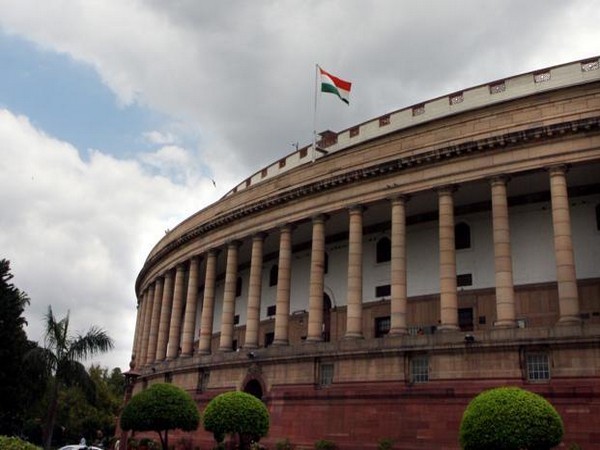Consumer Protection, DNA Technology Regulation among eight bills introduced in LS
A bill that provides for the creation of a central authority to protect, promote and enforce consumer rights and another to regulate the use of DNA to establish the identity of victims and offenders were among eight bills, which were introduced in the Lok Sabha on Monday in an hour.

- Country:
- India
A bill that provides for the creation of a central authority to protect, promote and enforce consumer rights and another to regulate the use of DNA to establish the identity of victims and offenders were among eight bills, which were introduced in the Lok Sabha on Monday in an hour. The DNA Technology (Use and Application) Regulation Bill, 2019, Unlawful Activities (Prevention) Amendment Bill, 2019, National Investigation Agency (Amendment) Bill, 2019, and Protection of Human Rights (Amendment) Bill, 2019 were introduced in the House.
The Consumer Protection Bill, 2019, Public Premises (Eviction of Unauthorised Occupants) Amendment Bill, 2019, Jallianwala Bagh National Memorial (Amendment) Bill, 2019 and Central Universities (Amendment) Bill, 2019 were also introduced in the House. The Consumer Protection Bill 2019, which was introduced by Consumers Affairs, Food and Public Distribution Minister Ram Vilas Paswan, provides for product liability action on account of harm caused to consumers due to defective action or on account of harm caused to consumers due to defective product or deficiency in services.
It also provides for "mediation" as an Alternate Dispute Resolution Mechanism. The bill seeks to replace the Consumer Protection Act 1986 and address the constantly emerging vulnerabilities of the consumers to the new forms of unfair trade and unethical business practices.
The emergence of global supply chains, rise in international trade and rapid development of e-commerce has led to new delivery systems for goods and services and have provided opportunities to the consumer. However, misleading advertisements, telemarketing, multi-level marketing, direct selling, and e-commerce also pose new challenges and require swift executive interventions to prevent consumer detriment.
The bill was passed in Lok Sabha in December 2018 but could not be passed in the Rajya Sabha and has been brought again by the government. The bill provides for the creation of Central Consumer Protection Authority (CCPA) to promote, protect and enforce the rights of consumers, make interventions when necessary to prevent unfair trade practices and initiate class action including recall, refund and return of products.
At present, the task of preventing or acting against unfair trade practices is not vested in any authority. The bill also simplifies the consumer dispute adjudication process of consumer dispute redress agencies. The DNA Technology Bill seeks to expand the application of DNA-based forensic technologies to support and strengthen the justice delivery system of the country.
It provides for mandatory accreditation and regulation of DNA laboratories so that DNA test results are reliable and the data remains protected from misuse in terms of privacy rights. The key components of the bill include the creation of a DNA regulatory board and the establishment of national and regional DNA data banks.
The Unlawful Activities (Prevention) Amendment Bill seeks to empower the central government to add or remove the name of individual terrorist from a proposed schedule by amending the Act. It also seeks to empower the Director General of the National Investigation Agency to grant approval of seizure and attachment of property when the case is investigated by the agency. RSP member NK Premachandran and Congress member Shashi Tharoor expressed reservations to some provisions of the bill.
Minister of State for Home G Kishan Reddy, who introduced the bill on behalf of Home Minister Amit Shah, said procedures already existed to designate individual responsible for terror incidents as a global terrorist. He suggested that opposition could withdraw their objections as these would not look good in records of the Lok Sabha but the opposition members did not withdraw their objections.
The Jallianwala Bagh National Memorial (Amendment) Bill seeks to remove the provision for the automatic nomination of Indian National Congress president to the Jallianwala Bagh Trust. The Central Universities Amendment Bill provides for the establishment of two central universities in Andhra Pradesh - a Central University and Central Tribal University.
The Protection of Human Rights (Amendment) Bill seeks to bring a change in the process of appointment of chairperson and members of the National Human Rights Commission (NHRC). It provides that a retired Supreme Court judge will also be eligible for appointment as NHRC chief. At present, a former Chief Justice of India can be appointed to the post. It also proposes to increase the members of the commission from two to three, one of which shall be a woman.
Congress leader Adhir Ranjan Chowdhury opposed some provisions of the bill. The Public Premises Amendment Bill seeks to facilitate smooth and speedy eviction of unauthorised occupants from government residences. The vacant residences will be available for allotment to eligible persons on the maturity of their turn in the waiting list. (ANI)
Also Read: Michael Jackson fans sue alleged abuse victims in French court
(This story has not been edited by Devdiscourse staff and is auto-generated from a syndicated feed.)
ALSO READ
US Delegation to Embark on Trade Mission to India to Discover Promising Agribusiness Opportunities
NEWSMAKER-He once sold tea, now India's Modi seeks his own 'tryst with destiny'
ADB forecasts robust investment and consumer demand to boost India's GDP growth to 7% in FY25
INSIGHT-India's Gandhi dynasty, trailing Modi, battles for political survival
India's Explosive Growth over the Past Decade, According to Silicon Valley Entrepreneur










